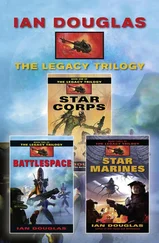“Good point,” Garroway said. “That tallies with how long our flight took, and the fact that I’m pretty sure we were going southwest. And those cliffs we saw outside suggest the Valles Marineris, too. That runs right along the equator. We could be inside the canyon chain, somewhere.”
“Hell, Valles Marineris is, what?” Caswell said. “Three thousand miles long? That’s only as long as the United States is wide! We could be as far from Mars Prime as San Diego is from Washington!”
“No, we’re close enough to Candor Chasma that the Mars cat could drive out here inside of a couple of days,” Ostrowsky pointed out. “They couldn’t have had more warning than that. That rules out the distant stations, like the one at Noctis Labyrinthus.”
“That one’s Bradbury Station,” Alexander put in. “You know, I’d need a survey map to be certain, but I’d be willing to bet we’re at Heinlein Station.”
“Yeah?” Knox asked. “So where’s that?”
“Damn, I don’t have my wrist-top or PAD,” Alexander said. “I really need something to draw on.”
“Will this do?” Ostrowsky asked. She slid a pad of paper and a pen across the tabletop. “Found ’em in the stores.”
“Good enough.” Alexander began sketching quickly. “Okay, here’s the widest part of the whole Valles Marineris. We’ve got three big, oval-shaped, east-west canyons stacked north to south, small to large, like this. Ophir Chasma up here. Candor in the middle. Melas to the south.
“To the west, we have two long, skinny canyons running in straight, east-west lines, like this. Ius Chasma comes into Melas Chasma, here. And Tithonium Chasma comes into Candor Chasma, so. Mars Prime is located on the Candor Mensa—a mensa is a kind of a plateau, flat-topped—smack in the middle of Candor Chasma, about here.
“Now, we’ve got several stations and outposts scattered around here, but the fact that we’re on a canyon floor, and the canyon isn’t all that wide—less than fifty kilometers is my guess—makes me think we’re in Tithonium.” He marked a spot in the northern of the two slender canyons west of Candor on the map. “Heinlein Station. I don’t know much about it, except that it’s supposed to be a single hab, and it was used by an areological team five years ago when they were surveying this part of the Valles. It’s about 650 kilometers west of Candor Chasma.”
King gave a low whistle. “That’s almost four hundred miles. We can’t do that on foot, that’s for sure.”
“No,” Garroway agreed. “We’re going to have to borrow that UN cat out there.”
“You know, if we’re that close,” Knox said, “then we can probably figure our friends outside aren’t going to stay there for the next three months, y’know? They wouldn’t have enough supplies in that cat to last ’em that long.”
“Shit,” Ostrowsky put in. “Can you imagine sitting in a cat for that long, just watching POWs? Talk about the cat watching the mousehole. Not my idea of soft duty!”
“Right,” Garroway said. “Their orders are probably to stay put and keep an eye on us until they know we’re not going to cause any trouble. If we haven’t tried anything in, oh, a week or so, they’ll likely pull out and make tracks for Mars Prime.”
“They might pop back in every once in a while to check up on us,” Knox added. “Or maybe Bergerac has arranged to have another cat come out here every few days or so and change the guard.”
“That would make sense. If it wasn’t tying up too many of their assets.”
“So what are we gonna do about it, Major?” Ostrowsky asked. “Sit here like good little POWs until they decide to let us go?”
Garroway had already given the problem considerable thought. “Our mission orders don’t quite cover this situation,” he said slowly. “But I do know that we still answer to the people who cut our orders Earthside…and we’re not fulfilling our part of the bargain by sitting here on our duffs doing what the UN tells us to do.” He looked at each of the others at the table in turn, measuring them. “We’re supposed to be safeguarding American interests here. Well, it seems to me those interests are under attack, and it’s our duty to fight back.”
“Fight back,” Alexander said. He shook his head. “Damn, Major, I don’t see how you can even think about that. We have no idea where we are, we have no weapons, and we can’t call for help. Sounds impossible.”
“No,” Garroway said. “It sounds like a challenge.”
He still wasn’t sure what they should do, what they could do, when it came to that. He was just beginning to recognize the fact that he’d had it pretty easy in the Corps for a long time. He’d been comfortable, enough so that maybe what they’d been saying about him back on Earth was true…that he’d gone ROAD.
Well, the hell with that noise. He wasn’t going to just sit by and watch people who were looking to him for leadership get slammed aside by ambitious UN glory-grabbing sons of bitches. Reaching down, he opened a plastic kit bag and began removing several small items from its depths, careful to keep them shielded beneath his hands as he laid them out on the table. Their bodies should hide the stuff well enough from any remaining spycams. They would still have to be careful about what they said.
“It’s fine to talk about fighting back,” Caswell said. She shivered and folded her arms across the armor of her cuirass. “But what can we do with…this?”
She nodded at the pitiful collection of artifacts on the table in front of them.
The inventory was actually a lot more impressive than Garroway had dared hope. The US Marines, it turned out, were an inventive bunch. Garroway first produced the wrist-top he’d smuggled out of Cydonia Prime. He didn’t have a PAD, so he couldn’t be sure it was still working after the rough handling it had taken in the shuttle, but when he strapped it on his wrist and touched the wake key, a winking point of green light showed that it was drawing power from his body heat and was ready to link. All he needed now was a display screen of some sort.
A surprising number of other Marines had smuggled various small objects out of their barracks. Sergeant Jacob had also managed to bring a wrist-top, though it was only an old, one-gig model, while Marchewka, Lazenby, Foster, and Donatelli all had pocketknives smuggled out in their shoes or hidden in unlikely parts of their clothing or anatomy. Doc Casey had walked right past the UN soldiers and climbed into his suit with a Mark I first-aid kit in his hand. Besides the usual pain meds, bandages, and other medical paraphernalia, Casey had squeezed a Marine combat knife inside. Lance Corporal Nolan contributed a length of number 4 steel wire, useful if they needed a garrote. Sergeant Radley had slipped some needle-nosed pliers into his shoe, while Corporal Hayes had palmed a five-gig memclip from the comm console. Kaminski’s contribution was less practical but perfectly in keeping with Corps tradition. He’d somehow managed to wrap an American flag tightly around his body beneath his T-shirt.
The real prize, however, was contributed by Staff Sergeant Ostrowsky. When the UN troops had broken into the women’s quarters, she’d managed to slip a Ruger-K Defender, a 2mm fléchette pistol, up inside her T-shirt. The Ruger was a tiny weapon—the sort of personal defense holdout weapon known as a pocket pistol—and could be concealed in a woman’s hand; throughout the ordeal at Cydonia, even when she’d been forced to keep her hands behind her head, she’d managed to hold her elbows in such a way that she’d kept the weapon held snugly in place between her rather generous breasts.
The Ruger wasn’t much of a weapon. Each of the five caseless sabot rounds in its magazine housed three 2mm fléchettes, deadly enough against an unprotected human if fired into throat or face at point-blank range, but useless against armor or even the protection afforded by a leather jacket, and next to useless at a range of more than a few meters. But it was something, at least. A beginning.
Читать дальше












